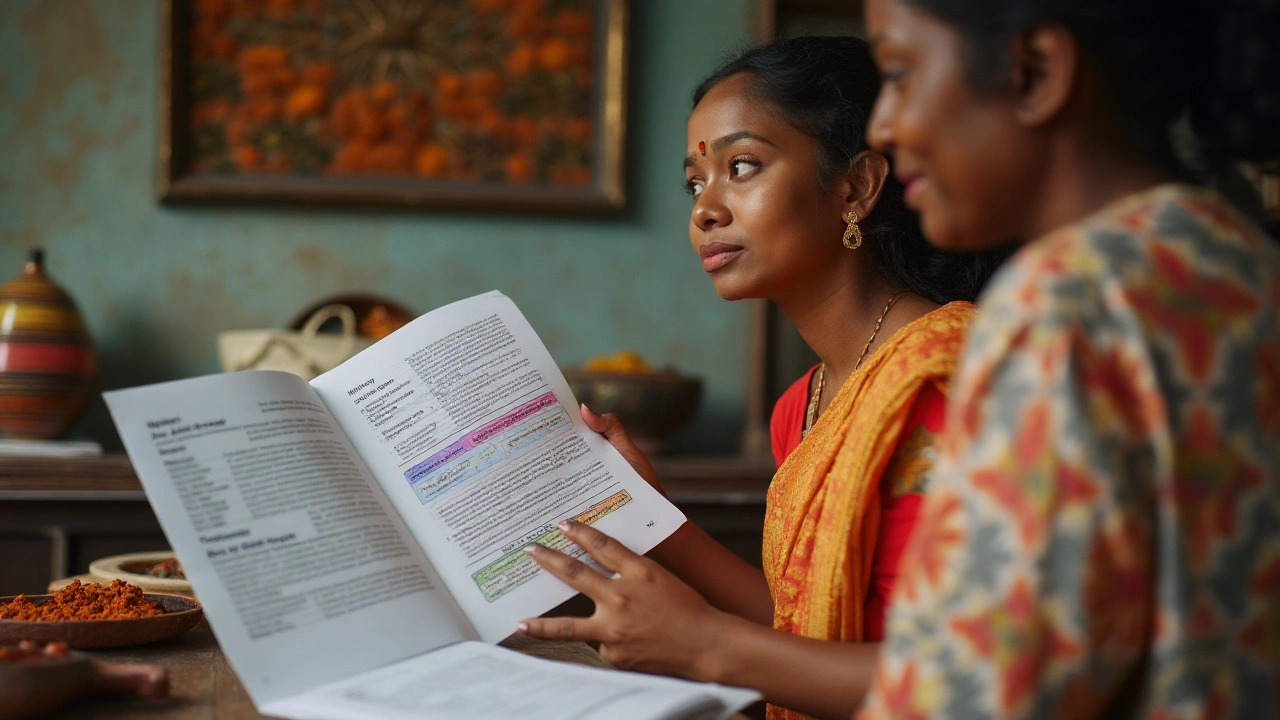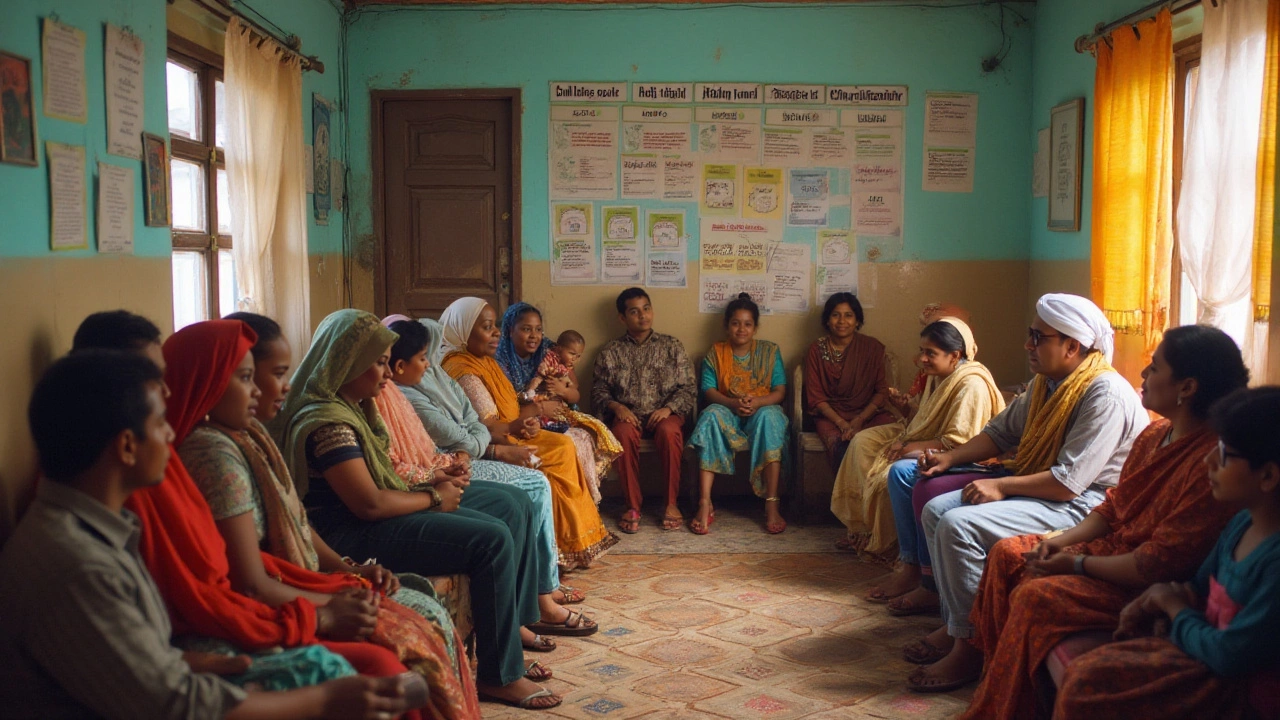Key Factors That Disqualify You from Public Housing in Virginia

Securing public housing in Virginia can be a lifeline for many families, ensuring they have a safe and affordable place to live. Navigating the eligibility criteria, however, can be a tricky process filled with a myriad of rules and regulations.
If you’re seeking public housing assistance, it’s crucial to be aware of the factors that could result in disqualification. From your financial situation to past behavior, several elements can influence your chances of being deemed eligible. By understanding these key factors, applicants can better prepare themselves and avoid potential setbacks on their path to securing housing.
- Understanding Public Housing Eligibility
- Financial Limitations and Requirements
- Impact of Criminal Records
- Family Composition and Residency Status
- Additional Considerations and Tips
Understanding Public Housing Eligibility
When it comes to applying for public housing in Virginia, the eligibility process is a critical step in determining whether you can secure a place in one of these communities. It's a path paved with specific rules and policies designed to aid those who truly need a home. At its core, public housing is intended for low-income families, elderly individuals, and people with disabilities, but the specifics can be quite detailed.
The journey begins with understanding what constitutes low-income status. In Virginia, this is typically outlined by federal poverty guidelines and varies by location, given the differences in cost of living across the state. The income threshold sets a benchmark that applicants must meet, allowing housing authorities to allocate resources equitably among those most in need. For instance, if you're applying in Northern Virginia, where the cost of living is significantly higher than other regions, you might find the income limits are adjusted accordingly.
Another key factor is family composition. Public housing programs often have stipulations based on the size of the household, including the number of dependents, and any special needs considerations that might apply. For example, a single parent with young children may require a larger unit than a senior living alone. This can also influence eligibility, as housing authorities strive to match applicants with appropriate accommodations.
Eligibility also includes residency status. Typically, you must be a citizen or have eligible immigration status to qualify for public housing assistance in Virginia. This aspect aligns with federal rules and ensures that benefits are directed to those legally residing in the U.S. Moreover, the selection process is not merely a matter of meeting these criteria. It's comprehensive, often involving background checks and a review of past rental history. “Public housing is more than providing shelter; it’s about fostering vibrant, stable communities,” explains Sheila Jones, a housing advocate.
Financial Limitations and Requirements
When applying for public housing in Virginia, one of the primary considerations revolves around the applicant's financial status. Understanding the financial limitations and requirements is crucial to ensuring a successful application process. Income limits are put in place to ensure that housing assistance is directed to those who need it the most. These limits are established by the Department of Housing and Urban Development (HUD) and are based on the median income levels in specific areas. This means your income compared to the median income in your locality plays a significant role in your eligibility.
Typically, households earning less than 80% of the area median income (AMI) may qualify for some form of housing assistance; however, those earning less than 50% of the AMI are given priority. This nuanced approach ensures the most vulnerable population receives the help they require. Moreover, the number of people in your household impacts the income eligibility. For instance, a single person's income limit will be different from a family of four.
It's essential to provide accurate and comprehensive documentation of your financial status, including proof of income such as pay stubs, Social Security benefits, unemployment compensation, and other relevant financial records. Any discrepancies in the provided information might delay your application process or lead to disqualification. A detailed understanding of what constitutes income will serve you well as it includes wages, salaries, tips, business income, alimony, and even regular financial gifts.
According to a local housing advocacy group, "Maintaining transparency and accuracy when reporting your financial status not only speeds up the approval process but also builds trust with your housing authority."
Applicants should also be mindful of adjustments that could impact their income status. These could include deductions for households with elderly or disabled members, child care expenses, or medical expenses that qualify for special considerations. This comprehensive approach is designed to tailor assistance to specific needs and to ensure equitable distribution of resources.
Remaining informed about these financial thresholds and keeping up to date with any changes in HUD regulations can greatly enhance your chances of eligibility for public housing. Engaging with community resources and housing counseling services can also provide additional insights into navigating these complex financial requirements.

Impact of Criminal Records
When it comes to accessing public housing in Virginia, one of the most significant hurdles many potential applicants face is a history of criminal records. While it is not necessarily a complete barrier, certain types of convictions can indeed disqualify individuals from securing public housing support. This aspect of the application process often leaves individuals feeling uncertain and anxious, as they attempt to navigate the complexities of their situation.
Specific offenses are considered especially serious and are likely to lead to a denial of public housing applications. These typically include violent crimes, drug-related offenses, especially those involving production or manufacture, and sex offenses that require registrants to remain on a sex offender registry. Such convictions suggest a potential risk to the safety and welfare of the community living in public housing, which is why the housing authorities may take a firm stance against allowing individuals with these backgrounds to reside within their communities.
However, it's necessary to note that not all criminal history will automatically lead to disqualification. Each case is generally reviewed on an individual basis, taking into account not only the nature of the offense but also the time that has elapsed since the conviction and any rehabilitation or corrective actions taken by the individual. In many cases, applicants with minor infractions or those that occurred many years ago may still be considered for assistance, especially if they can demonstrate a period of good behavior and positive contributions to their communities since the offense.
An interesting aspect to consider is the adoption of more forgiving policies by some housing authorities, aiming to provide a second chance to those genuinely seeking reform. According to a report by the U.S. Department of Housing and Urban Development, there's a growing recognition of the need to balance safety with fairness, where authorities are encouraged to consider factors such as age at the time of offense, efforts towards rehabilitation, and the impact on families involved. One notable statement from the HUD report highlights, "Discrimination against individuals with a criminal record is counterproductive to community safety, as it perpetuates cycles of poverty and recidivism."
"Public housing serves as a critical need for stability and shelter that allows individuals and families to rebuild their lives," emphasizes the US Conference of Mayors in their dialogue on support for housing opportunities for people with past convictions.
In some cases, potential tenants may have to engage in what is known as “recertification” or “appeal” processes, which allow them to provide additional information or context to their past convictions. This step can help clarify their current circumstances and present their case in a more favorable light to the housing authorities. Knowing how to navigate these processes efficiently becomes a vital skill for those who might have a checkered past looking to secure public housing assistance in Virginia.
Family Composition and Residency Status
When applying for public housing in Virginia, understanding how family composition and residency status affect eligibility is crucial. Generally, a household is defined by the number of individuals who will reside in the unit, and this plays a significant role in determining eligibility and priority on waiting lists. The makeup of your family, including the number of children, seniors, or individuals with disabilities, can impact which programs you are eligible for.
Each housing authority in Virginia may have different priorities based on demographic needs in their area. Some might give precedence to families with children under a certain age, or prioritize veterans and the elderly. It's essential to provide accurate information about every member of your household, as misrepresentation can lead to disqualification. Household size also dictates the size of the unit you are eligible for, which means larger families might have more limited options.
Residency status is another crucial factor. Typically, applicants must be legal residents of the United States, although some programs allow mixed-status families to apply under certain conditions. Showing proof of residency ensures that the limited resources are allocated to those who legally reside in the community. An interesting fact is that in certain high-demand areas, some local housing authorities may even require an applicant to be a resident of the area for a certain period before they can apply, although this is not the norm statewide.
According to the U.S. Department of Housing and Urban Development, one must validate residency through documents such as a driver's license, state ID, or utility bill. Providing incorrect or falsified documents can lead to disqualification. It is vital to ensure that all documentation is current and truthful to avoid application denial.
"The importance of honest representation in your housing application cannot be overstated," says a representative from HUD. "Submitting accurate family and residency information builds trust and ensures that those most in need receive assistance."
For families considering applying, it is wise to gather all necessary documents and ensure that every member's information is up to date. Doing so not only facilitates a smoother application process but also positions your family better in the eyes of housing authorities. Staying informed and organized benefits applicants greatly, and involving all adults in the household in the preparation process is often recommended.

Additional Considerations and Tips
When applying for public housing in Virginia, there are a few additional considerations that many applicants might find useful. These aspects can sometimes be overlooked but can indeed sway the outcome of your application process. Ensuring you have covered all your bases not only speeds up the process but also enhances your eligibility. Firstly, staying informed about the local housing policies, which can change from time to time, is paramount. Regulations that govern public housing often evolve, and keeping abreast with these changes can benefit you greatly. Attend local housing meetings or regularly check updates from housing authorities to ensure you are aware of any new developments that might affect your application.
Another vital tip is to maintain accurate and up-to-date records. The importance of documentation in housing proceedings cannot be overstated. Your financial records, identification documents, and any necessary family information should be current and accurate. There's often scrutiny from authorities to validate these details, and discrepancies might delay your application or even result in disqualification. Consider seeking assistance from local charities or organizations specialized in assisting with public housing applications; they can guide you through the process and help ensure you have everything you need.
It's also essential to understand that maintaining a good relationship with previous landlords can sometimes offer unexpected advantages. It’s not just about having a clean slate; references from former landlords can serve to prove past reliability and responsibility. Having someone vouch for your positive history as a tenant might tilt circumstances in your favor. Engaging in open communication about your needs and expectations with housing authorities can also build rapport and trust, which can be invaluable in a competitive application environment.
Participation in community activities related to housing could also enhance your application. Building a network within the community can open doors to information that isn’t always readily available. Engaging with support groups or attending workshops on maintaining rental homes can showcase your commitment to being a responsible tenant. This proactive approach not only informs you but also places you on the radar of housing authorities as someone who is serious and knowledgeable about their responsibilities.
If you’re looking for more structured support, there are organizations in Virginia committed to assisting those navigating public housing challenges. These organizations can provide invaluable support, from financial planning services to legal advice should you need it. According to a study, around 30% of successful housing applicants used some form of external guidance to navigate the public housing application process effectively. Seeking this support could therefore be a wise move, especially if you’re applying for the first time or have faced previous application hurdles.
The overall aim should be to present yourself as a viable candidate. Facets like financial stability, a good moral record, and a willingness to comply with housing rules are crucial. Applicants are encouraged to put forth a narrative that shows they are not only in need but prepared for the commitment of affordable housing. Continuing to work on areas that need improvement will only serve to make you more appealing to housing authorities who have the arduous task of allocating limited resources. Remember, preparation and information are your greatest allies in the quest for public housing in Virginia.









Write a comment